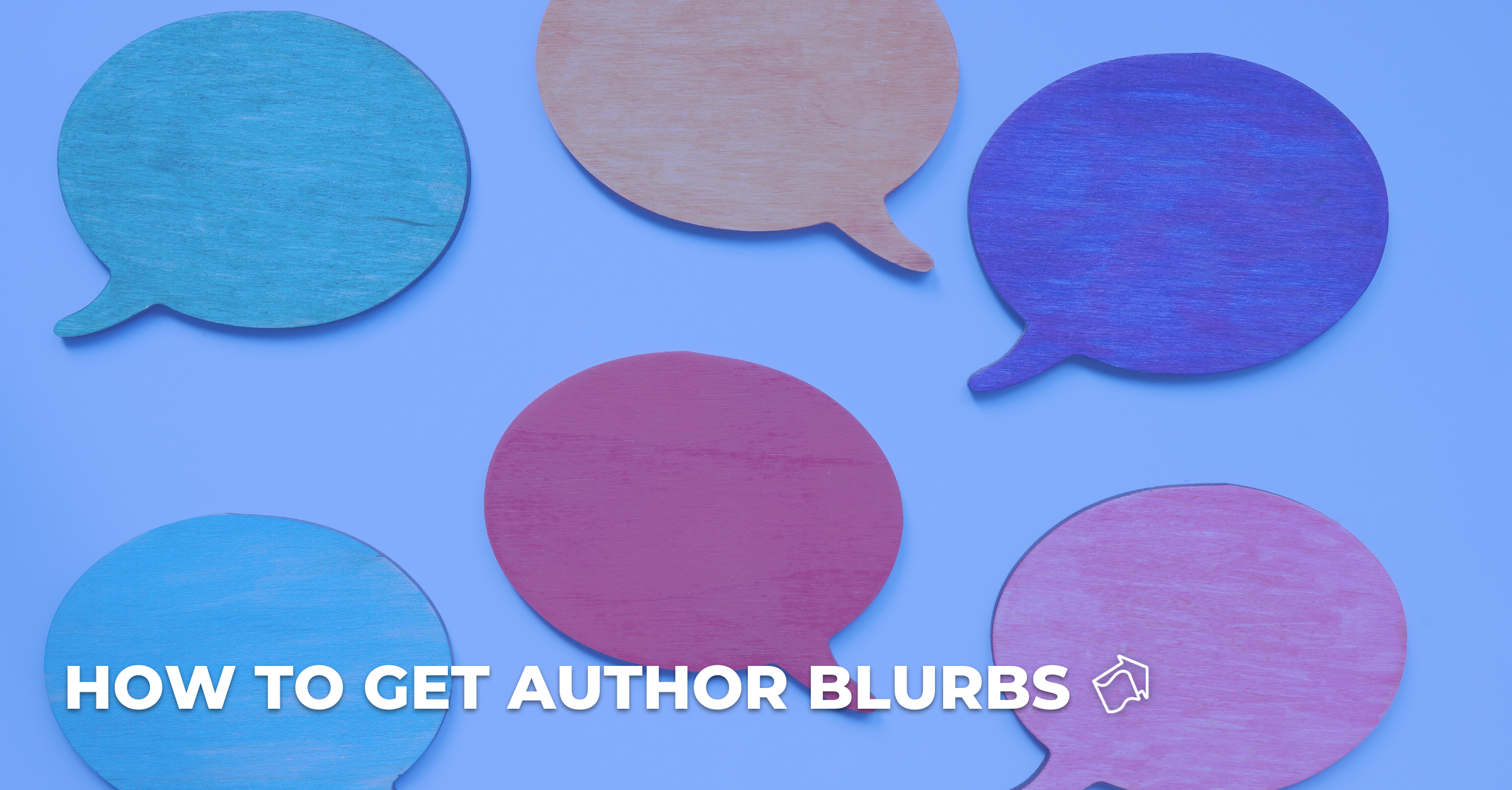An endorsement or “blurb” is a positive statement about a book, most typically quoted on book covers, from other authors, experts, or celebrities. You’ll also see blurbs on online retailer sites or in advertising. Endorsements are important marketing tools: they subtly encourage readers to purchase the book by promoting the author’s credibility and the book’s strengths.
But how do books get these endorsements? Books receive blurbs because the author (or publisher) asks people to read and endorse the book. There are three types of people you should ask for an endorsement:
Authors/experts who work in the same genre or field as you
and the more accolades they can reference, the better. For example, if you’ve written a romance novel, it will be best to get an endorsement from another romance novelist–preferably one who can reference a memorable accolade, like “[Name], Romance Writers of America ‘Author of the Year’.”
Authors or experts who are recognizable names
Celebrity endorsements sell books (even if they don’t have any expertise in your genre). If Oprah Winfrey endorses your book, it will boost sales. Note that celebrities pretty much only endorse books when they have relationships with the author already, which leads us to the final category:
Authors and experts you have personal relationships with
Even if a prospective endorser doesn’t work in your genre, having a positive quote about your book is better than not having any blurbs at all. When in doubt, reach out to authors and experts that you have relationships with to gather endorsements.
Begin seeking endorsements 3-6 months prior to your book’s production if possible, and no later than 1-3 months prior to production. You can seek out as many endorsements as you like, but 5-7 solid blurbs is a “sweet spot.”
Here’s how to get author endorsements and book blurbs:
Step Zero: Network.
Meet other people who write, promote, and publish books, or who share in your particular field of expertise, or both! Sign up for events and conferences, join writer / professional groups, connect on social media, and promote the work of other authors and experts. You never know where a connection may lead!
Step One: Make a list of prospective endorsers.
The list could include friends, colleagues, mentors, and other respected names in your field or genre. Identify your most desirable and realistic endorsers, and prioritize your list strategically. Keeping your timeline in mind, select the best prospective blurbers from the list, and identify back-ups in case an endorsement falls through.
Step Two: Reach out to your prospective endorsers.
Here are some do’s and don’ts for contacting your potential blurbers:
Do:
- Email them. Reach out via their personal email addresses, website contact forms or email their publicists or representatives. We don’t recommend using social media for blurb requests.
- Personalize your message. Explain why you’re reaching out to them specifically. If they’ve written a book, it would be meaningful for you to read their work before asking them to read yours. Compliments never hurt: tell them what you admire about their work, and why you would be grateful for them to take a look at yours.
- Offer a clear deadline – this will make it easier for the person to say yes or no.
- Follow up if necessary. If you have a relationship with the potential blurber, feel free to follow up as much as that relationship allows. If it’s a cold contact, follow up once, and if you don’t hear back, move on or ask a personal contact if they happen to know them / have a way to reach them.
- Accept that some commitments will fall through. Life is busy, and some people who express interest in or even agree to endorse your work won’t deliver. That’s part of the process; accept their response gracefully and have your back-ups ready!
Don’t:
- Contact via social media. It’s not a professional look, and as recommended above, there are better ways to get in touch.
- Be demanding. You’re asking for a favor: ask nicely, and accept responses (or no response) gracefully.
- Offer to write the blurb for them, if they’ll sign their name. Again, it’s an unprofessional (and ethically questionable) move, and it’s frowned upon. If an endorser or representative specifically requests for you to ghost-write your own blurb, you can make your own decisions about that — but don’t offer pre-emptively.
- Share your endorsements before you’ve collected them all. If you brag on social media about a great endorsement you’ve received and another potential endorser sees it, it may de-prioritize your book in their TBR pile (after all, you’re getting great blurbs already, so do you really need theirs?). This won’t be the case every time obviously, but sometimes discretion is best.
Step Three: Thank your endorsers (and stick to your production deadline!).
Be swift, authentic, and enthusiastic in your thanks every time you receive an endorsement. Once you’ve collected all of your blurbs by your deadline, be sure to include them on your book’s endorsements pages, online retailer sites, personal website, and pick the strongest 1-3 for your cover.

Chelsea is a copywriter, editor, publicist, and content creator at Books Forward, an author publicity and book marketing firm committed to promoting voices from a diverse variety of communities. From book reviews and author events, to social media and digital marketing, we help authors find success and connect with readers. Interested in what’s possible for your book sales and building readership? Check out our services, tell us your goals, and get a customized publicity campaign tailored just for you.


